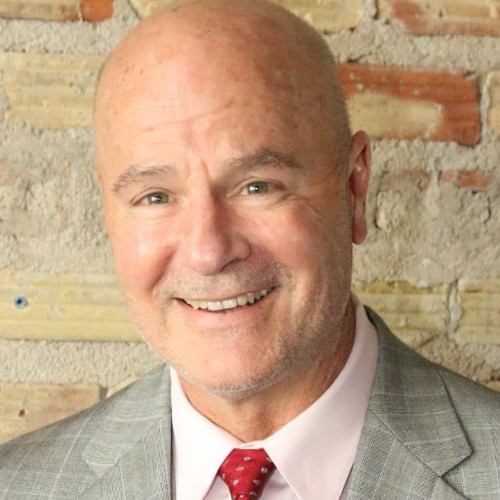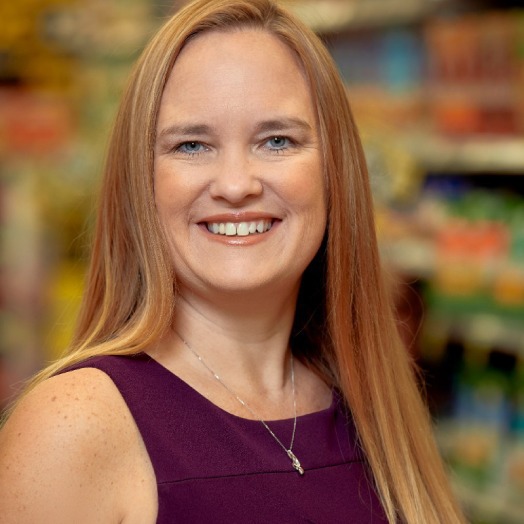









Supply Chain Digital Summit
Supply Chain leaders are facing a number of challenges. Of all industrial sectors, the supply chain network has the most to gain from harnessing industry 4.0 but what are the best ways to chart a course, form a strategy, and a roadmap towards industry 4.0 success?
Sense check your approach with like-minded industry experts, sharing insight on business-critical challenges and disruptive technology, and drive your industry forward collaboratively.

Alex Wood
Why Attend
New connections
Build new connections with likeminded senior leaders
Business trends
Stay current with emerging business trends
Key takeaways
Downloadable and actionable takeaways
New partnerships
Accelerate key projects through meaningful new partnerships
Insights
De-risk new projects by gaining a broad range of insights
New technologies
Understand the impact new technology can make



















Trusted by
We host global organizations with the conversations that matter. That’s why we’re trusted by these top brands.
Event Agenda
09:00 - 09:15
Opening Remarks
Intro & Diamond Commentary
09:15 - 09:45
Keynote
09:46 - 10:26
Panel Discussion
Customer centricity: Devising new ways to ensure seamless omni-channel fulfilment
The omnichannel shopping experience is set to remain for the foreseeable future. In order to meet rising consumer demand across multiple sales channels, supply chains must adapt – and fast. However, many organisations’ supply chains predate omnichannel and layering the newly required capabilities on top of legacy systems can be difficult. Organizations need to undertake broader and deeper transformations to meet increasing consumer expectations in consumer experience, individualization, and delivery speed, while keeping delivery costs under control. How can they effectively implement this?
10:26 - 10:36
Insight Break
How Robotics Automation is shaping the future of Logistics
Join as Rick discusses the current and future challenges involved with supply chain operations, and how robotics automation is changing the logistics industry.
10:36 - 11:26
Roundtables
Track 1: Leveraging the Power of Data to Reduce Supply Chain Friction
Sponsor:
Business leaders across the board face significant challenges when it comes to reducing friction across their supply chains. The fragmentation that often exists between different parties across a large logistics network – from retailers to suppliers, manufacturers, and consumers – can result in a problematic lack of visibility for key decision makers and bring with it costly knock-on effects. But is the cloud revolution and innovative new data solutions turning the dial on this?
Many businesses are quickly tapping into the power of data to reshape and innovate across their supply chains – real-time planning and integrated warehouse management being key areas for such advancements. We explore how leaders are moving their supply chain from ground to cloud in a bid to be more responsive, control costs and remain competitive in an ever-changing landscape.
Track 2: Developing an effective last-mile risk-mitigation strategy for supply chain resilience
Sponsor:
According to McKinsey, on average, companies experience a disruption to their supply chain of one to two months in duration every 3.7 years. The most recent and prominent of these disruptions being the COVID-19 crisis, post-pandemic economic effects, and the ongoing conflict in Ukraine – all have been detrimental in exposing the vulnerabilities of today’s global supply chains.
In order to outpace consumer demand and mitigate risks, a successful last-mile delivery strategy must be flexible, responsive and resilient. From optimising fulfilment locations and delivery options, to exploring the use of dark stores, last-mile storage and collection points, how can leaders develop a strategic roadmap for supply chain resiliency that delivers?
Track 3: Future-proofing supply chain: How to achieve your sustainability goals and embed responsibility into your operations
Sponsor:
In recent years, the pressure on multinational corporations to offer robust sustainability credentials has escalated significantly. EY research found that eight in 10 supply chain executives are increasing their efforts towards sustainable supply chain operations – and this number is only set to rise.
With organizations now seeking new ways to embed responsibility into every part of their supply chain, the environmental and societal impacts of large-scale logistical operations have come under the microscope. From raw materials sourcing to production, storage and delivery to each transportation link in between, how are supply chain leaders building a future-proofed plan to achieve their sustainability goals?
11:26 - 11:31
Short Break
11:31 - 12:11
Keynote
Digital Transformation in the Supply Chain: One Size Doesn’t Fit All
Technology implementation and digital strategies in the supply chain have accelerated at an exponential clip over the last 3 years. As companies have worked to create resilient teams in the face of unpredictable supply and demand, one thing has become clear: When it comes to warehousing and supply chain strategies, one size doesn’t fit all.
Join Mike Babiak, Director of Operational Excellence, as he shares the issues with the standardization of supply chain transformation, pitfalls to avoid when creating a resilient supply chain, and strategies forward-thinking teams are applying that allow them to create customized plans with flexible solutions.
12:12 - 12:42
Headline Keynote
09:00 - 09:15
Opening Remarks
09:15 - 09:45
Keynote
What will take to become a 1.5 degree company?
The quest for sustainability requires action on many fronts. One of the most challenging aspects for large corporations in achieving their science-based emission reduction targets is addressing the emissions of their supply chains. As the pressure points on businesses mount and become increasingly complex, it is imperative that business leaders are committed to driving climate action throughout global supply chains in line with latest science. Barry Parkin, Chief Procurement and Sustainability Officer at Mars highlights what will it take to become a 1.5 degree company.
09:47 - 10:27
Panel 2
Mapping out a sustainable future – what is a responsible supply chain?
In unprecedented times, the need to integrate ethical and environmentally responsible practices into business operations has never been greater. Eight in 10 supply chain executives are increasing their efforts toward sustainable supply chain operations, according to research by EY. But what does this look like in practice? In a bid to meet growing demands from consumers, employees and stakeholders, supply chain leaders are focusing on the efficient use of natural resources, decarbonization, ethical sourcing and fair trade in order to build an effective, sustainable and responsible supply chain roadmap.
10:27 - 10:37
Insight Break
10:40 - 11:30
Roundtables
Track 1: Leveraging the Power of Data to Reduce Supply Chain Friction
Sponsor:
Business leaders across the board face significant challenges when it comes to reducing friction across their supply chains. The fragmentation that often exists between different parties across a large logistics network – from retailers to suppliers, manufacturers, and consumers – can result in a problematic lack of visibility for key decision makers and bring with it costly knock-on effects. But is the cloud revolution and innovative new data solutions turning the dial on this?
Many businesses are quickly tapping into the power of data to reshape and innovate across their supply chains – real-time planning and integrated warehouse management being key areas for such advancements. We explore how leaders are moving their supply chain from ground to cloud in a bid to be more responsive, control costs and remain competitive in an ever-changing landscape.
Track 2: Developing an effective last-mile risk-mitigation strategy for supply chain resilience
Sponsor:
According to McKinsey, on average, companies experience a disruption to their supply chain of one to two months in duration every 3.7 years. The most recent and prominent of these disruptions being the COVID-19 crisis, post-pandemic economic effects, and the ongoing conflict in Ukraine – all have been detrimental in exposing the vulnerabilities of today’s global supply chains.
In order to outpace consumer demand and mitigate risks, a successful last-mile delivery strategy must be flexible, responsive and resilient. From optimising fulfilment locations and delivery options, to exploring the use of dark stores, last-mile storage and collection points, how can leaders develop a strategic roadmap for supply chain resiliency that delivers?
Track 3: Future-proofing supply chain: How to achieve your sustainability goals and embed responsibility into your operations
Sponsor:
In recent years, the pressure on multinational corporations to offer robust sustainability credentials has escalated significantly. EY research found that eight in 10 supply chain executives are increasing their efforts towards sustainable supply chain operations – and this number is only set to rise.
With organizations now seeking new ways to embed responsibility into every part of their supply chain, the environmental and societal impacts of large-scale logistical operations have come under the microscope. From raw materials sourcing to production, storage and delivery to each transportation link in between, how are supply chain leaders building a future-proofed plan to achieve their sustainability goals?
11:31 - 12:01
Innovation Exchange Keynote
Turning Uncertainty into Opportunity with Resilient Supply Chains
Disruptions are inevitable. Supply Chain needs to be in position to turn uncertainty ito opportunity. What are the main elements for a resilient Supply Chain? Case study: Digital Twin technology that connects planning across the end-to-end value chain by combining supply chain, procurement, commercial and financial variables.
12:03 - 12:33
Closing Prime Keynote
09:00 - 09:15
Opening Remarks
09:15 - 09:45
Keynote
Beyond decarbonization: towards One-Planet-Compatible end-to-end Supply Chains
This session will cover strategic facets of Supply Chain sustainability - from decarbonization to circularity; human to biodiversity dimensions; and outside-in to the future-outlook perspective. The conversation will highlight critical success factors for ‘Real-sustainability’ in the Supply Chain.
09:46 - 10:26
Panel Discussion
Accelerating digital transformation and optimising operations – digitisation, automation and increased efficiency
Supply chain leaders are leveraging the power of digital technologies to deliver competitive advantage and navigate the common occurrence of uncertainty and disruption across supply networks. Digital transformation is enhancing processes across all aspects of the supply chain, including financing, procurement, warehousing and real-time visibility into inventory levels. Implementing new technology has proven to be a game changer. It’s enabling organisations to operate in innovative new ways and deliver increased value to customers. But where do you start and how do you progress smoothly on your digital transformation journey?
10:27 - 10:37
Insight Break
10:37 - 11:27
Roundtable Leaders Panel
11:27 - 11:35
Short Break
11:35 - 12:05
Innovation Exchange Keynote
Resiliency - more than a buzzword: A programmatic framework to reimagine and elevate your supply chain organization
Discover how Stanford Supply Chain designed a risk framework and response strategies that enable an agile approach in the face of disruptions to prevent, mitigate, respond, and recover. Obtain insights on how resiliency is incorporated into the fabric of an organization and how pivotal it is to the sustainability and response to the unknowns we face daily in the Supply Chain. An excellent opportunity to hear from a healthcare provider organization that faced unprecedented demands, immense pressure, and global constraints yet excelled at a response that ensured supply continuity to the healing hands that care for patients.
12:06 - 12:36
Closing Keynote
The future of procurement - powered by change leadership
The future of procurement is dependent on companies’ ability to guide their people and various stakeholders through a continuously changing environment. Keeping pace with innovations across industries, businesses and supply chains requires change management skills combined with an efficient operating framework and best-in-class technology to help achieve objectives in data, supply chain resilience and responsible sourcing.
12:36 - 12:46
Insight Break -Closing Comments
An immersive
event experience
interactive features including:
Audience Interaction
Engage with a virtual live audience just as you would at a physical event and create meaningful conversations.
Interactive Live Polling
Keep engaged through interactive live polling and gamification tools.
Direct connections
Ask your questions face-to-face with the speakers via our leading stage technology.
Relationship building
Build stronger connections with leading executives that you will take with you through your career
Thought Leadership
Content and insight from industry experts when it matters most
Intelligent interaction
Interactive quizzes gamify your experience
Have a question…
There is no cost associated with attending a GDS Summit. In return, we ask that all senior executives in participation attend for the full duration to ensure that all attendees get maximum value and insight from the interactive roundtables, live Q&As and breakout networking sessions.
Our digital summit portfolio is designed to bring together senior decision makers from large global businesses and innovative disruptor brands to drive industry forward through addressing business critical challenges collaboratively.
If you’re keen to build new connections with likeminded leaders, de-risk your projects through new insight and establish new partnerships that can accelerate your projects then apply to attend today.
Complete our form below if you’re interested in attending the summit and you meet our application criteria. A member of the GDS team will then reach out to run you through the programme and event format and discuss your participation.
On stage: co-host a panel discussion with a group of likeminded senior executives or host a solo keynote presentation. Both slots include elements of interactive audience Q&A
Off stage: become a roundtable moderator, leading the discussion with the same cohort of executives for the duration of the summit around a specific topic you’ve agreed to focus on during the roundtable session.
We can tailor a partnership package to help meet your business objectives. This might include brand awareness, driving traffic to your site or quality editorial content via exclusive interviews and Q&As with our executive audience. Enquire today for more information.































































